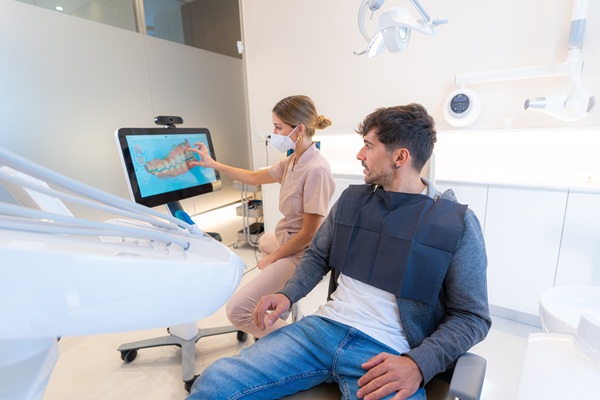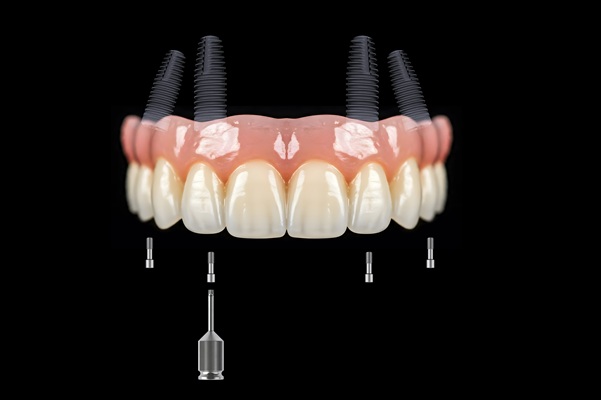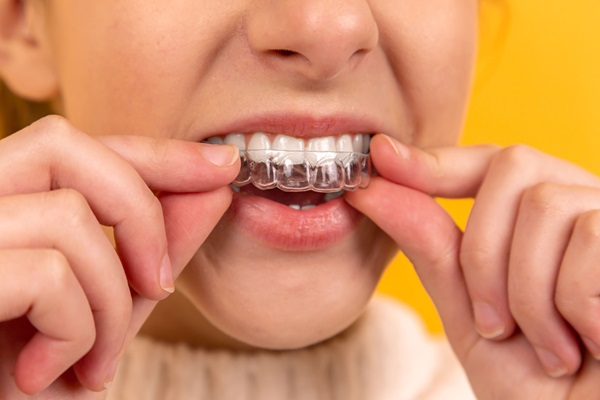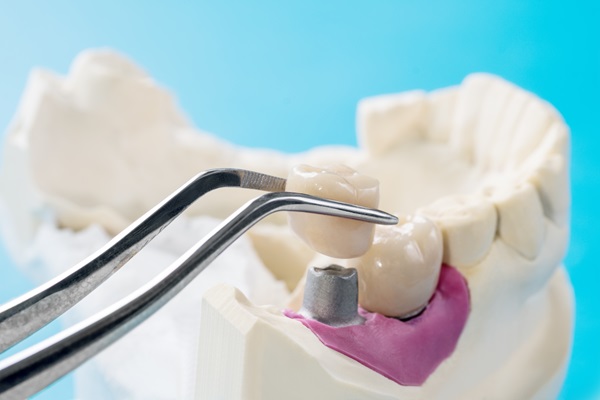Am I a Candidate for Dental Implants Georgetown, MA
If you have ever wondered, "Am I a candidate for dental implants?" we encourage you to call (978) 867-0860 and schedule an appointment with our Georgetown, MA dental office. Dr. Cheong can conduct an examination and take X-rays to determine if you qualify for implant surgery, and if not, what it will take to get you there. At Georgetown Dental Partners, we will work with you to come up with the best way to replace your missing teeth, even if that means conducting additional procedures to ensure that you do qualify.
Am I a candidate for dental implants if I have crowded teeth?
Yes, you are. However, you may need to wear an orthodontic solution to create space for the implant first. It is unwise to attempt to place an implant when there is not sufficient space. Placing a dental implant without the proper amount of space will only exacerbate the challenges you have. It is important to time the procedure correctly and properly place the implant in an area that we prepare to support the implant. Since the process requires oral surgery, it pays to do it right the first time.
Is there a cutoff age for dental implants?
No, but there are a few requirements for dental implants that people of various ages may not meet. While we treat older patients and we believe it is never too late to improve a smile, the patient needs to have sufficient bone density to support a dental implant. Patients who wear dentures for a long time before seeking dental implants may struggle with a jaw bone that cannot properly support the dental implant. In this case, a mini-dental implant may be more appropriate. With a mini-dental implant, the metal post is shorter, requiring less bone structure to secure the implant.
Do I qualify if I have crooked teeth?
Certainly. At Georgetown Dental Partners, we treat patients who have crooked teeth. In many cases, our patients will begin an orthodontic treatment and receive a dental implant when it is nearly complete. That way, space can be created for the implant if necessary. Simultaneously, when the procedures are combined, your smile will be greatly improved. In rare cases, existing teeth do not respond like they should to an orthodontics treatment like braces or aligners. In this situation, a professional may recommend having that one particular tooth removed and replaced with a dental implant. This is something we can discuss with you in our Georgetown dental office.
Can I get implants if I have an over/under-bite?
Yes. The position of your bite does not necessarily impact whether or not you qualify for dental implants. However, we will typically recommend that you consider solutions to address this issue. By first aligning your jaw, you can correct both the appearance and functionality of your smile.
Check out what others are saying about our Dental Implants support services on Yelp: Am I a Candidate for Dental Implants Georgetown
Are implants the right solution for missing teeth?
Absolutely. Dental implants were designed to replace missing teeth. Whether you have lost one or several teeth due to age, infection, decay, or damage, we can replace them with durable dental implants. Dental implants are the only solution that replaces both your missing root and tooth. We will secure a titanium post to your jawbone and, through the process of osseointegration, the jaw will provide the same level of stability to your replacement tooth that it did to your natural one. Patients appreciate how durable this solution is and how it allows them to maintain an active lifestyle while eating all their favorite foods. If you are simultaneously evaluating dentures or a dental bridge, consider how dental implants can positively impact your lifestyle and then call 978-867-0860 to schedule an appointment with Georgetown Dental Partners.
Can I get implants if I have gum disease?
For your health, no. It is much better to wait until you go through the necessary treatment to eliminate the gum disease. Healthy gums are critical for this procedure since we need to cut into the gums to place the metal implant. Any existing infection can decrease the success rate of the procedure and extend your recovery process. When you visit our Georgetown dental office, we will let you know if we discover any signs of gum disease and present you with a treatment plan to address it.
Am I a candidate for dental implants if I have cavities?
Not yet, but you can be. In our dental office, we can treat your cavities by removing tooth decay and restoring your teeth. We can complete this procedure fairly quickly and decide if the teeth are healthy enough or if dental implants are necessary. At Georgetown Dental Partners, we also want to ensure your mouth is healthy prior to starting a procedure of this magnitude.
Am I a candidate for dental implants if my teeth fell out a long time ago?
At Georgetown Dental Partners, we treat patients in all stages of life and often work with seniors who receive dentures after tooth loss and now feel dissatisfaction with the results. While dentures are effective, they have a level of inconvenience. Patients need to take the dentures out to clean and soak them on a regular basis. In other situations, patients can struggle with the dentures slipping out on accident. Unfortunately, after losing an adult tooth, the body goes through the process of resorption. Through resorption, the body leaches calcium from the jawbone for use elsewhere. A patient who has lost teeth may not have a jawbone that is dense enough for the procedure. In this case, we may need to perform a bone graft or refer you to specialist for one. The other solution to consider would be mini-dental implants, where the actual post is shorter, requiring less bone density to remain in place.
Dental implants are by far the best solution for tooth loss. A dental implant can look so natural that other people may not be able to tell which tooth is the replacement. It is also durable enough to allow you to engage in high impact activities, like running a marathon or singing in the choir without worrying about your tooth becoming loose. With dental implants, you will also be able to eat all of your favorite foods. Patients are able to smile with confidence after getting dental implants..
To learn how this solution can work for you, call and schedule an appointment by calling (978) 867-0860. Georgetown Dental Partners is located at 25 E Main St Georgetown, MA 01833.
Questions Answered on This Page
Q. How do I know if dental implants are right for me?
Q. Will my cavities get in the way of dental implants?
Q. Can dental implants replace my missing teeth?
People Also Ask
Q. Will the implants be obvious?
Definition of Dental Implant Terminology
- Abutment
- An abutment is a component that attaches to the dental implant so a professional can place a dental crown to provide patients with an artificial, aesthetically pleasing and fully-functional smile.
- Bridge
- Multiple replacement teeth that are fixed in place via attachment to dental implants, natural adjacent teeth, or a combination of the two.
- Dental Crown
- A crown is an artificial tooth, usually consisting of porcelain, which covers the top of the implant to provide people with an aesthetically pleasing and fully-functional tooth.
- Dental Implant
- A dental implant is an artificial tooth root that is placed into your jaw to hold a replacement tooth or bridge. Dental implants may be an option for people who have lost a tooth or teeth due to periodontal disease, an injury, or some other reason.
- Endosteal (endosseous)
- Endosteal is a type of dental implant that a professional places in the alveolar and basal bone of the mandible that transcends only one cortical plate.
- Eposteal (subperiosteal)
- Eposteal is a type of dental implant that conforms to whichever edentulous surface of an alveolar bone is superior.
- Implant-Supported Bridge
- An implant-supported bridge is a dental bridge that professionals fix in place with the use of dental implants inserted in the jaw to create a sturdy set of artificial teeth.
- Osseointegration
- Osseointegration is the process in which a titanium dental implant fuses with the surrounding bone over several months after an oral health professional places the implant in the jaw.
- Periodontal
- Literally “around the tooth”
- Resorption
- Resorption is the process in which the body absorbs the calcium from the jaw since there are no tooth roots to cause the necessary stimulation and proceeds to use the calcium in other areas.
- Transosteal (transosseous)
- Transosteal is a type of dental implant that includes threaded posts which penetrate the superior and inferior cortical bone plates of the jaw.
Back to top of Am I a Candidate for Dental Implants





